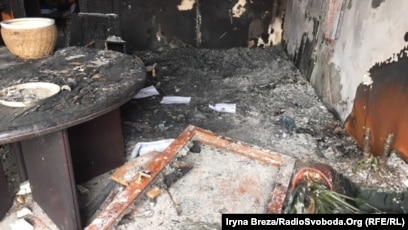Hungary Calls in Ukrainian Envoy After Death of Ethnic Hungarian: A Diplomatic Response Explained

Hungary Summons Ukrainian Envoy After Tragic Death of Ethnic Hungarian in Zakarpattia
The Hungarian Ministry of Foreign Affairs has formally called in the Ukrainian ambassador to Budapest following the reported death of an ethnic Hungarian from Zakarpattia, a region in western Ukraine. The individual, whose identity remains undisclosed, was reportedly compelled to serve in the Ukrainian Armed Forces and lost his life in the ongoing conflict. The announcement was delivered by Levente Magyar, Hungary’s Deputy Foreign Minister, marking a significant diplomatic moment between two neighboring countries with a long and complex history.
This high-level démarche signals Budapest's profound concern over the circumstances surrounding conscription policies and the welfare of ethnic Hungarian minorities living abroad. Zakarpattia, home to a substantial Hungarian population, has periodically attracted the attention of Hungarian authorities, particularly in situations where minority rights or safety are at stake. The tragic loss has catalyzed official action, underscoring Hungary’s stated commitment to protecting its kin communities beyond its borders.
From an international perspective, the case touches on several sensitive issues. Compulsory military service during wartime remains a subject of intense debate, particularly in multiethnic regions. Reports suggesting that the deceased was forced into service add another layer of complexity and raise questions about the application of conscription laws in Ukraine’s minority regions. Hungarian officials have sought clarity on these procedures, emphasizing the need for transparency and the strict protection of minority rights in conflict zones. This incident has occurred against the backdrop of heightened diplomatic tension, as relations between the two countries have recently been tested on several fronts.
Minority Rights and Conscription: A Diplomatic Flashpoint
The status of ethnic minorities in Zakarpattia has been a recurring topic for both Budapest and Kyiv. Hungary has frequently highlighted the protection of its diaspora community as a fundamental pillar of its foreign policy. The latest incident has reignited old debates over autonomy, cultural preservation, and the limits of state authority during emergencies. The Hungarian government’s move to summon the Ukrainian envoy brings these issues into sharper relief and puts a renewed spotlight on the treatment of ethnic Hungarians under Ukrainian jurisdiction.
Officials in Budapest are seeking detailed information regarding the circumstances that led to the individual’s death and are pressing for assurances that similar incidents will not recur. While Ukraine faces unprecedented security challenges, neighboring states continue to monitor the implications of conflict for cross-border communities. Protecting the human rights of minorities, particularly in areas affected by military mobilization, is a delicate task that often tests the boundaries of bilateral agreements and international conventions.
The response from Hungarian diplomats is notable not only for its timing but also for its tone, which has been measured yet unequivocal. By formally engaging with Kyiv’s representative, Hungary has signaled that even amid broader geopolitical upheaval, the fate of individual citizens remains a matter of urgent national interest. The action taken by the Hungarian Foreign Ministry serves as a tangible reminder that the humanitarian dimensions of war extend well beyond the immediate theater of conflict.
Key Terminology and Legal Context
To fully understand the situation, it is important to clarify certain core terms and legal principles involved. Conscription, or mandatory military service, is governed by national law and is often enforced during states of emergency. Minority rights, on the other hand, refer to the legal protections afforded to ethnic and national groups distinct from a country’s majority population. International frameworks, such as the Council of Europe’s Framework Convention for the Protection of National Minorities, set standards for the respectful treatment of these communities, especially in times of upheaval.
The notion of “forced conscription” implies service without voluntary consent, an allegation that can carry serious legal and ethical implications under both domestic and international law. Any substantiated breach of such rights can lead to calls for independent investigation and intervention by international bodies. For Hungary, the ongoing protection of Zakarpattia’s Hungarian population is not only a policy commitment but also a source of national solidarity and diplomatic leverage. These principles frame Budapest’s current demands for clarification and reinforce the broader importance of minority rights in inter-state relations.
This latest diplomatic episode underscores the complicated intersection of war, national security, and the persistent quest for minority protection. While both countries continue to navigate the ramifications of regional instability, the well-being of individuals—particularly those at the intersections of ethnic identity and conflict—remains a pressing concern for governments, organizations, and communities alike. The ongoing dialogue between Hungary and Ukraine will likely influence future approaches to conscription, minority protection, and cross-border diplomacy in a region shaped by both history and urgent contemporary challenges.
